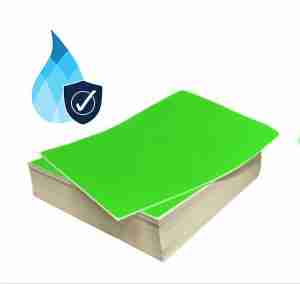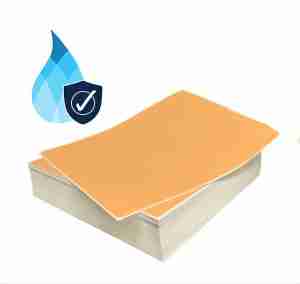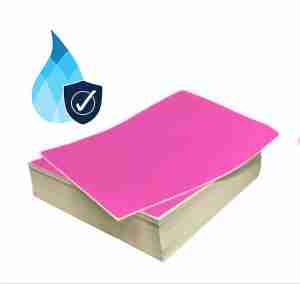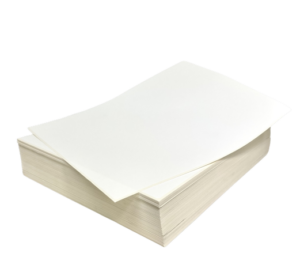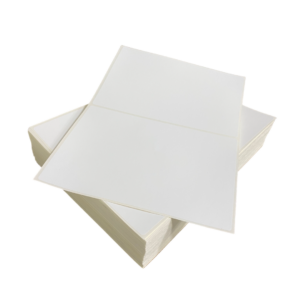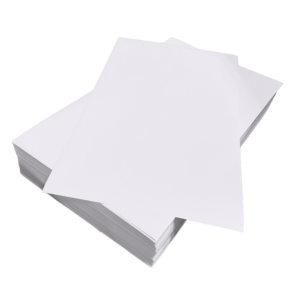Synthetic Labels
When Paper Just Won't Cut It
When paper labels fail, synthetic labels step up to handle your toughest labeling challenges. Made from durable polyester, vinyl, and polypropylene materials, these labels resist water, chemicals, and extreme temperatures while maintaining clear barcode scanning and text readability. Our American-made synthetic labels deliver reliable performance in manufacturing, automotive, chemical processing, and outdoor applications where standard materials simply won’t last.
Get PolyMatte labels that won’t quit when your production floor heats up.
Core
Format
Label Size
Material
Applications
Printer Compatibility
Our Synthetic Label Material Options
We manufacture synthetic labels using proven materials that deliver consistent performance across diverse applications. Each material offers specific advantages depending on your environmental requirements and application needs. Our product line includes these synthetic solutions:
Polypropylene construction with matte finish providing permanent adhesion on steel and corrugated surfaces while allowing clean removal with minimal residue. See PM Products
Heat-activated printing capability available in standard and drum-specific formulations for industrial applications. No ribbon required. See PMDT Products
Sheet format synthetic labels designed for laser printer compatibility with professional appearance and industrial-grade durability. See LPO Products
Flexible vinyl material that conforms to curved surfaces while providing acceptable chemical resistance and tear-resistant properties for versatile labeling applications. See TTV Products
The latest development in material manufacturing providing premium UV protection while requiring no ribbon. This new formulation is perfect for identification and equipment marking. See PMDT-UV Products
Our Laser Vinyl (LV) is made for durability and conformable to nearly any surface. BS5609 certified, our LV material is designed for laser printers offering sharp print quality and long-term adhesio.
Why Switch to Synthetic Labels?
When paper labels don’t live up to your expectations, synthetic labels step up. Whether is being used in car lots or industrial ovens, Indoor or outdoor. BarcodeLabels.com has synthetic labels for any environment and any application.
Synthetic labels are more than plastic. Vinyl, polyester, and polypropylene offer distinct advantages amongst themselves that make them unique to one another.
*Please contact us for specific material parameters
- UV Resistance*
- Extreme Heat/Cold Safe*
- Chemical/Oil/Solvent Resistance
- Superior Shipping
Matching Synthetic Materials to Your Operation
Intense conditions on manufacturing floors destroy paper labels, sometimes in a matter of hours. Our PolyMatte labels remain clear and legible, whether used in automotive paint booths or welding operations. Manufacturing and chemical plants need materials that won’t dissolve when splashed with solvents or cleaning compounds. Outdoor equipment requires labels that stay readable after years of sun, rain, and temperature swings. Whatever your needs and conditions, we have a solution for it all:
Environmental Performance Requirements
Manufacturing environments with heat exposure need materials rated for your specific temperature ranges. Our PolyMatte thermal transfer labels handle automotive paint booth temperatures while maintaining adhesive performance and print clarity. Cold storage applications require materials that stay flexible at sub-zero temperatures without adhesive failure.
Chemical exposure determines material compatibility requirements. Polyester materials provide broad chemical resistance, while vinyl options offer flexibility for applications involving moderate chemical contact.
Adhesive Selection and Surface Compatibility
Adhesive choice affects long-term performance and removal requirements for your specific application. Different adhesive formulations serve different needs, from permanent asset identification to temporary marking requirements. Surface preparation plays a major role in adhesive performance regardless of material selection:
Permanent: Strong, reliable bonding to most clean surfaces, including cardboard, plastic, metal, and glass. Ideal for general warehouse, shipping, and retail applications.
All-Temp: Maintains adhesion in extreme temperature conditions from freezing to elevated temperatures. Perfect for cold chain logistics, frozen products, and outdoor equipment.
Removable: Secure adhesion with clean removal without residue or surface damage. Great for temporary labeling, reusable containers, and retail price marking.
American-Made Synthetic Labels for Industrial Applications
We manufacture synthetic labels at our USA facility. Using vertically integrated processes, we control our products’ quality from raw materials to finished products. We produce synthetic labels engineered for demanding industrial applications including automotive, chemical processing, warehousing, and outdoor equipment marking.
Use our online form to contact our team, discuss your synthetic labeling requirements, and request samples for testing in your specific application.
FAQs
What is a synthetic label?
A synthetic label is made from polymer-based materials like polyester, vinyl, or polypropylene instead of paper substrates. These materials offer resistance to moisture, chemicals, and temperature extremes that destroy traditional paper options while maintaining clear print quality and strong adhesive bonds.
Are polyethylene labels better than polyester?
Polyethylene and polyester labels each excel in different applications depending on your specific needs. Polyester offers superior chemical resistance and higher temperature performance, while polyethylene provides flexibility and cost-effectiveness for applications requiring conformability to curved surfaces.
What printers use synthetic labels?
Synthetic labels are compatible with major thermal transfer printer brands including Zebra, Datamax, Intermec, Sato, TSC, and Cab systems. Thermal transfer printing delivers the most durable results with scratch-resistant and solvent-resistant output, while direct thermal options work for short term applications.
